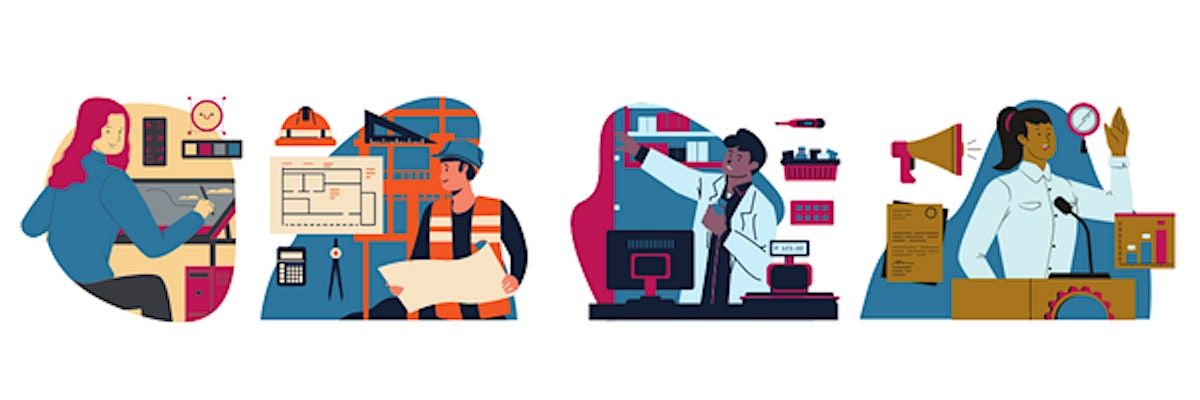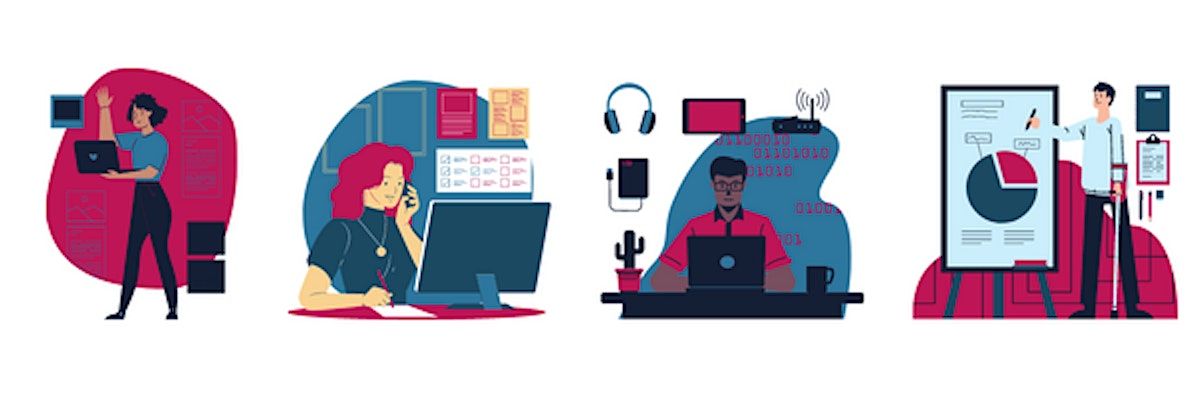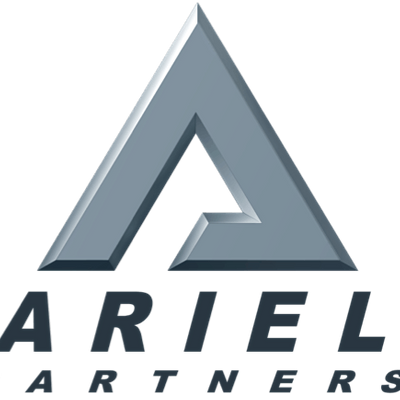
Advertisement
4 Days * 4 hoursAbout this Event
What is Value Stream Management, and why is it the key to business agility?
Value streams exist in every public and private organization: construction, insurance, investments, criminal justice, philanthropy, education, homeland defense, firefighting, subsidized housing, pharmaceuticals, banking, farming, and health care, just to name a few. A value stream refers to the series of process steps and handoffs involved in delivering value to customers, from “concept to cash.” By mapping this end-to-end process, we better understand the coordination and handoffs involved and can measure which parts of the process tend to take the longest.
Value streams typically involve multiple teams across several disciplines, such as marketing, sales, development, finance, and operations. By visualizing the entire end-to-end process at a higher level, we can immediately see the bottlenecks and delays, which may be difficult to see from the team level.
Possibilities for improvement become evident, and a 50% reduction in average delivery time is not uncommon. FL2D is an agile transformation roadmap that teaches how to understand, identify, and manage value streams by creating simple Kanban systems at a higher vantage point than the team level, called “flight level two.” This class is one of a series of classes that enable lean transformation through an exciting new approach called the “flight levels thinking model.”
Do I need to know Kanban before taking this class?
Value stream management is based on the principles of Lean and Kanban, but prior experience is not necessary. FL2D will teach you everything you need to know to apply these principles to manage your value streams. FL2D is part of a set of three classes: FL2D, FL3D, and FLSA, that together comprise an approach to Enterprise Kanban called “flight levels.”
How does this relate to the Scaled Agile Framework (SAFe)?
FL2D is a lightweight and powerful approach that is fully compatible with Essential SAFe. It is highly recommended for organizations seeking a lighter weight and economical alternative or those taking the first step towards full-scale SAFe adoption. The trainer is a certified SAFe Program Consultant (SPC), Accredited Kanban Consultant (AKC), and Flight Levels Coach (FLC).
What is the Flight Levels Thinking Model, and how does it facilitate Lean Transformation?
Class Schedule
- Training Class Day 1: Monday, 03 March 2025 (1:00 PM-5:00 PM EDT)
- Training Class Day 2: Tuesday, 04 March 2025 (1:00 PM-5:00 PM EDT)
- Training Class Day 3: Wednesday, 05 March 2025 (1:00 PM-5:00 PM EDT)
- Training Class Day 4: Thursday, 06 March 2025 (1:00 PM-5:00 PM EDT)
TIME: 1:00 PM to 4:00 PM (main session) and 4:00 PM to 5:00 PM (intersession for participants) Eastern Standard Time
4 days * 4 hours per day from 1pm-5pm EST
Class Description
- Design & Operate Flight Levels to Manage your Product and Service Value Streams
- Are you battling with loads of dependencies, swamped by new requests, and planning the next cycle?
- Under pressure from your customers and stakeholders to deliver faster?
- Need to understand why your time to market isn’t meeting projected goals?
- Do you need an agile transformation roadmap that everyone can use from project management to human resources?
- Are you looking for agile coaching certification?
The main impediment to flow is a lack of interaction between your teams, not the agility of individual teams.
This course helps you uncover the big levers for improvement and explores how you can practically apply them to your unique situation. We will focus on coordinating the flow of value across multiple teams in a Department, Tribe, Product, or Service area.
What Is the Flight Levels model?
Flight Levels is an exciting new Agile thinking model that is elegantly simple yet comprehensive enough to address the entire enterprise. Using the flight levels framework, organizations can reduce their time to market, identify and capitalize on new business opportunities, understand their capacity to take on new work, measure the possible impact of new initiatives, and identify where adding new resources will give them the highest leverage.

How does this unique agile training accomplish this?
By helping us visualize the way work flows throughout the enterprise using three lenses. The flight level model is an agile training that recognizes that we need three “viewpoints” for managing our work:
- Flight level three, or the strategy level,
- Flight level two, or the coordination level, and
- Flight level one or the team level
Flight Levels elevate your business agility skillset:
- Understand and manage your flow between teams.
- See your capacity in real-time. With appropriate detail on each level.
- Measure the outcomes, not just outputs, and gauge progress towards Strategic Goals.
- Agile Teams can see how operational work connects to strategy.
- Leaders see how Strategy connects to Reality.
- Connect your levels to each other, creating a shared focus.
- Keep the collective focus on delivering your Company Strategy
- Take your agile coaching to the next level to help your clients achieve their goals.
Who will benefit from this type of agile leadership training?

This is intermediate-level training aimed at those working in the following roles:
- Leadership
- Middle and Senior Managers
- Transformation Leaders
- Department heads
- Enterprise Agile Coaches
- Organizational Designers
- Team Leads and Tribe Leads
- Scrum Masters and Change Agents
- Project and Product Managers
- Healthcare Administration
- Human Resources Managers
- Agile team-level coaches and trainers
Prerequisites
Introduction to Flight Levels (FLIN) self-paced online course. The FLIN covers the foundational elements of Flight Levels and is required learning prior to attending the live FL2D workshop. You will be given the option to purchase FLIN licenses when you book a seat on FL2D.
Certification

This workshop is certified by Flight Levels Academy. After completing the workshop, participants receive a “Certificate of Completion” from the Flight Levels Academy.
The knowledge imparted in the Flight Level Two Design Workshop (FL2D) is a basic requirement if you want to become a certified Flight Levels Coach (FLC).
About the Trainer

- &
Craeg Strong is the CTO of Ariel Partners, a small IT consulting company based in Times Square. He teaches public classes in Kanban and Human Centered Design and coaches teams to adopt and mature Agile/Kanban practices in the NYC area. He has 25 years of experience in information technology, starting at Project Athena during his undergraduate studies at MIT. Mr. Strong has successfully instituted Agile and DevOps practices on large and complex commercial and government software projects, helping them to obtain new capabilities and realize significant cost efficiencies. Mr. Strong leverages his experience as a hands-on software architect, trainer, and agile coach to help remove the barriers that prevent organizations from adopting new technologies-- such as cloud. Mr. Strong led a successful transformation of a major FBI Criminal justice program from a traditional waterfall lifecycle and manual intensive processes to lighter weight agile processes and full DevOps automation.
Advertisement
Event Venue
Online
Tickets
USD 2455.00










